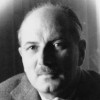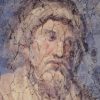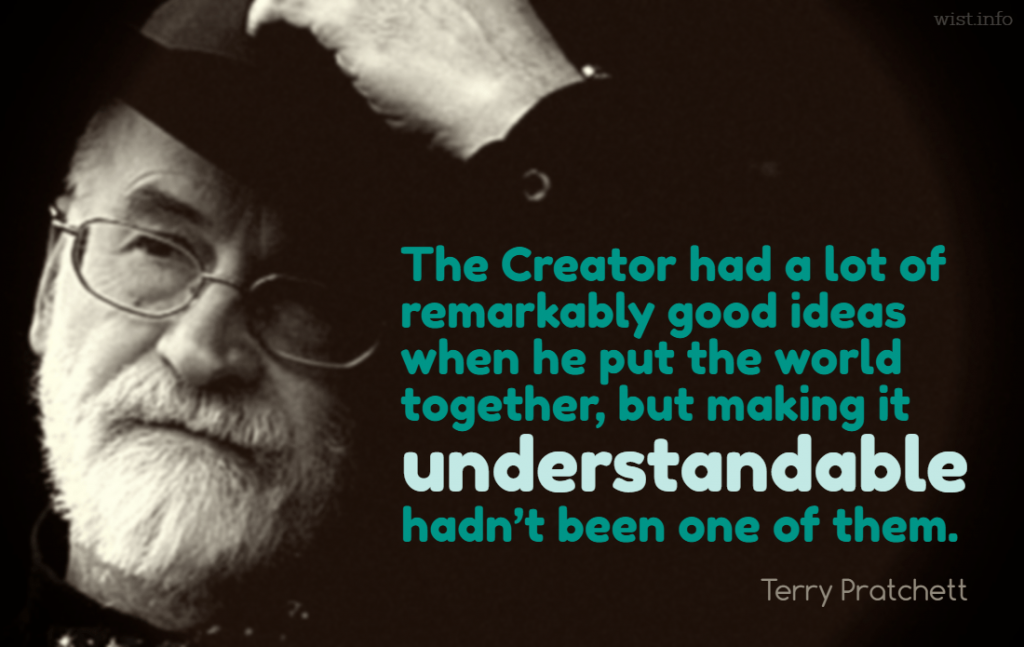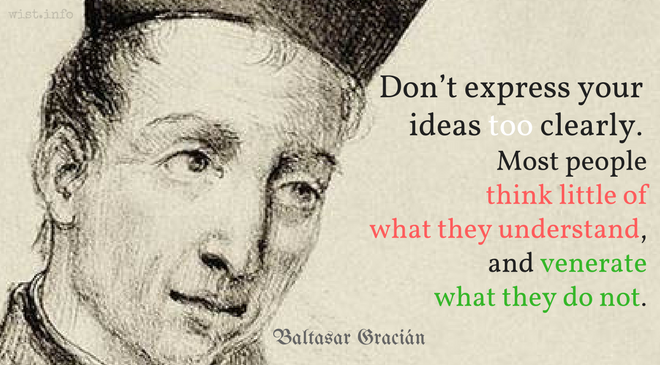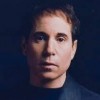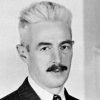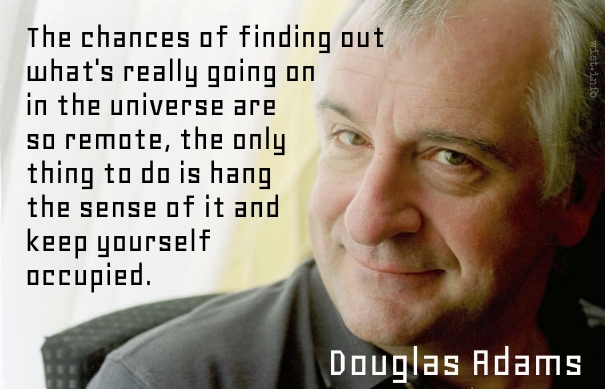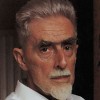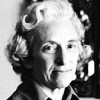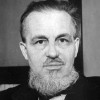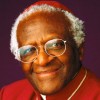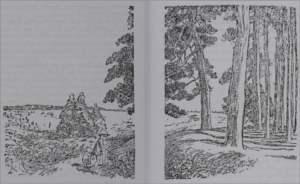Still, what I want in my life
is to be willing
to be dazzled —
to cast aside the weight of facts
and maybe even
to float a little
above this difficult world.
Quotations about:
mystery
Note not all quotations have been tagged, so Search may find additional quotes on this topic.
Sorrow is knowledge: they who know the most
Must mourn the deepest o’er the fatal truth,
The Tree of Knowledge is not that of Life.George Gordon, Lord Byron (1788-1824) English poet
“Manfred,” Act 1, sc. 1 [Manfred] (1817)
(Source)
There is of course a clash between ‘literary’ technique, and the fascination of elaborating in detail an imaginary mythical Age (mythical, not allegorical: my mind does not work allegorically). As a story, I think it is good that there should be a lot of things unexplained (especially if an explanation actually exists); and I have perhaps from this point of view erred in trying to explain too much, and give too much past history. Many readers have, for instance, rather stuck at the Council of Elrond. And even in a mythical Age there must be some enigmas, as there always are. Tom Bombadil is one (intentionally).
J.R.R. Tolkien (1892-1973) English writer, fabulist, philologist, academic [John Ronald Reuel Tolkien]
Letter to Naomi Mitchison (1954-04-25)
(Source)
Letter 144 in Humphrey Carpenter, ed., The Letters of J.R.R. Tolkien (1981).
Some marriages break up, and some do not, and in our world you can usually explain the former better than the latter.
Mignon McLaughlin (1913-1983) American journalist and author
The Second Neurotic’s Notebook, ch. 1 (1966)
(Source)
As for understanding the ways of Providence, I gave up trying, long ago. I see no way of solving the mysteries of this strange existence, except by regarding it as preparatory to another; and even with that explanation, the fate of some individuals remains an inexplicable riddle.
Lydia Maria Child (1802-1880) American abolitionist, activist, journalist, suffragist
Letter to Harriet Seward (1869)
(Source)
I am content to be one of the multitude of Christians who do not care much about the doctrine of the Trinity or the historical truth of the gospels. Both as a scientist and as a religious person, I am accustomed to living with uncertainty. Science is exciting because it is full of unsolved mysteries, and religion is exciting for the same reason.
Freeman Dyson (1923-2020) English-American theoretical physicist, mathematician, futurist
“Progress in Religion,” Templeton Prize acceptance speech, Washington National Cathedral (9 May 2000)
(Source)
For those who live neither with religious consolations about death nor with a sense of death (or of anything else ) as natural, death is the obscene mystery, the ultimate affront, the thing that cannot be controlled. It can only be denied.
Susan Sontag (1933-2004) American essayist, novelist, activist
Illness As Metaphor, ch. 7 (1978)
(Source)
Scientifically speaking, a butterfly is at least as mysterious as a superstring. When something ceases to be mysterious it ceases to be of absorbing interest to scientists. Almost all things scientists think and dream about are mysterious.
Freeman Dyson (1923-2020) English-American theoretical physicist, mathematician, futurist
Infinite in All Directions, Part 1, ch. 2 “Butterflies and Superstrings” (1988)
(Source)
Based on his Gifford Lectures, Aberdeen, Scotland (Apr-Nov 1985).
I do not love thee, Sabidius, nor can I say why;
I can only say this, I do not love thee.[Non amo te, Sabidi, nec possum dicere quare:
Hoc tantum possum dicere, non amo te.]Martial (AD c.39-c.103) Spanish Roman poet, satirist, epigrammatist [Marcus Valerius Martialis]
Epigrams [Epigrammata], Book 1, epigram 32 (1.32) (AD 85-86) [tr. Bohn’s (1859)]
(Source)
(Source (Latin)). Alternate translations:
I love thee not, Sabidius; ask you why?
I do not love thee, let that satisfy!
[tr. Wright (1663)]
I love thee not, but why, I can't display.
I love thee not, is all that I can say.
[tr. Killigrew (1695)]
SABBY, I love thee not, nor can say why.
One thing I can say, SAB: thee love not I.
[tr. Elphinston (1782)]
I love you not, Sabidis, I cannot tell why.
This only can I tell, I love you not.
[tr. Amos (1858), 3.86, cited as 1.33]
I do not love you, Sabidius, nor can I say why;
I can only say this, I do not love you.
[tr. Bohn's Classical (1897)]
I do not love you, Sabidius; and I can't say why.
This only I can say: I do not love you.
[tr. Ker (1919)]
I like you not, Sabidius, and I can't tell why. All I can tell is this: I like you not.
[tr. Shackleton Bailey (1993)]
I don’t love you, Sabidius, no, I can’t say why:
All I can say is this, that I don’t love you.
[tr. Kline (2006)]
Mister Sabidius, you pain me.
I wonder (some) why that should be
And cannot tell -- a mystery.
You inexplicably pain me.
[tr. Wills (2007)]
Sabidius, I dislike you, but why this is so true
I can't say, I can only say I don't like you.
[tr. Bovie (1970)]
Sabinus, I don’t like you. You know why?
Sabinus, I don’t like you. That is why.
[tr. Cunningham (1971)]
Sabidius, I don't like you. Why? No clue.
I just don't like you. That will have to do.
[tr. McLean (2014)]
There are some variations of this epigram of note. The first is from Thomas Forde (b. 1624):
I love thee not, Nell,
But why I can't tell;
Yet this I know well,
I love thee not, Nell.
[Letter to Thomas Fuller in Virtus Rediviva (1661)]
This seemingly served as a prototype for a more famous variant, attributed to Thomas Brown (1663-1704) (sometimes ascribed to "an Oxford wit") on Dr. John Fell, the Dean of Christ Church, Oxford, c. 1670:
I do not like thee, Dr. Fell,
The reason why I cannot tell;
But this, I'm sure, I know full well,
I do not like thee, Dr. Fell.
[Works, Vol. 4 (1774)]
This is sometimes rendered:
I do not love you, Dr. Fell,
But why I cannot tell;
But this I know full well,
I do not love you, Dr. Fell.
Along these same lines:
I do not like you, Jesse Helms.
I can’t say why I’m underwhelmed,
but I know one thing sure and true:
Jesse Helms, I don’t like you.
[tr. Matthews (1995)]
A Dialogue between two Infants in the womb concerning the state of this world, might handsomely illustrate our ignorance of the next, whereof methinks we yet discourse in Platoes denne, and are but Embryon Philosophers.
Thomas Browne (1605-1682) English physician and author
Hydriotaphia, or Urne-Buriall, ch. 4 (1658)
(Source)
For even the humblest person, a day spent without the sight or sound of beauty, the contemplation of mystery, or the search for truth and perfection is a poverty-stricken day; and a succession of such days is fatal to human life.
Lewis Mumford (1895-1990) American writer, philosopher, historian, architect
The Condition of Man (1944)
(Source)
Familiarity breeds contempt, while rarity wins admiration.
[Parit enim conversatio contemptum; raritas conciliat admirationem.]
Apuleius (AD c. 124 - c. 170) Numidian Roman writer, philosopher, rhetorician [Lucius Apuleius Madaurensis]
On the God of Socrates [De Deo Socratis]
(Source)
First recorded passage with this phrase. Discussing why the gods do not mingle with humanity. Alternate translations:
The first part of the phrase is also used as the modern moral the English translation of Aesop's "The Fox and the Lion." Applying this proverb to Aesop seems to have first happened in 1820; in classic Greek sources, the moral was more along the line that "acquaintance overcomes fear."
- "Familiarity produces contempt, but infrequency conciliates admiration."
[tr. Taylor (1822)]- "Familiarity breeds contempt, but privacy gains admiration." [
Works of Apuleius (1853)]- "Familiarity breeds contempt, but concealment excites interest."
[National Review (1858-04)]
The Creator had a lot of remarkably good ideas when he put the world together, but making it understandable hadn’t been one of them.
Any sufficiently advanced magic is indistinguishable from technology.
Charles "Charlie" Stross (b. 1964) British writer
The Nightmare Stacks, ch. 18 (2016)
(Source)
A variant of Clarke's Third Law.
Sickness and sorrows come and go, but a superstitious soul hath no rest.
Don’t express your ideas too clearly. Most people think little of what they understand, and venerate what they do not. […] Many praise without being able to say why. They venerate anything hidden or mysterious, and they praise it because they hear it praised.
[No allanarse sobrado en el concepto. Los más no estiman lo que entienden, lo que no perciben lo veneran. […] Alaban muchos lo que, preguntados, no saben dar razón. ¿Por qué? Todo lo recóndito veneran por misterio y lo celebran porque oyen celebrarlo.]
Baltasar Gracián y Morales (1601-1658) Spanish Jesuit priest, writer, philosopher
The Art of Worldly Wisdom [Oráculo Manual y Arte de Prudencia], § 253 (1647) [tr. Maurer (1992)]
(Source)
(Source (Spanish)). Alternate translations:
Not to be too intelligible. Most part do not esteem what they conceive, but admire what they understand not. [...] Many praise that which they can give no reason for, when it is asked them: because they reverence as a mystery all that is hard to be comprehended, and extoll it, by reason they hear it extolled.
[Flesher ed. (1685)]
Do not Explain overmuch. Most men do not esteem what they understand, and venerate what they do not see. [...] Many praise a thing without being able to tell why, if asked. The reason is that they venerate the unknown as a mystery, and praise it because they hear it praised.
[tr. Jacobs (1892)]
A Bit Vague. For most men have low regard for what they understand, and venerate only what is beyond them. [...] Many praise, but if asked can give no reason: Why? for they revere all that is hidden because mysterious, and they sing its praises, because they hear its praises being sung.
[tr. Fischer (1937)]
What I try to do is write a story about a detective rather than a detective story. Keeping the reader fooled until the last, possible moment is a good trick and I usually try to play it, but I can’t attach more than secondary importance to it. The puzzle isn’t so interesting to me as the behavior of the detective attacking it.
Dashiell Hammett (1894-1961) American author, screenwriter, political activist
Interview with Helen Herbert Foster, “House Burglary Poor Trade,” Brooklyn Eagle Magazine (Oct 1929)
(Source)
It sometimes seems to me that we are all afflicted with an urge and possessed by a longing for the impossible. The reality around us, the three-dimensional world surrounding us, is too common, too dull, too ordinary for us. We hanker after the unnatural or supernatural, that which does not exist, a miracle. As if that everyday reality isn’t enigmatic enough!
The unrecorded past is none other than our old friend, the tree in the primeval forest which fell without being heard.
Barbara W. Tuchman (1912-1989) American historian and author
“Can History Be Served Up Hot?” New York Times (8 Mar 1964)
(Source)
I think the detective story is by far the best upholder of the democratic doctrine in literature. I mean, there couldn’t have been detective stories until there were democracies, because the very foundation of the detective story is the thesis that if you’re guilty you’ll get it in the neck and if you’re innocent you can’t possibly be harmed. No matter who you are. There was no such conception of justice until after 1830. There was no such thing as a policeman or a detective in the world before 1830, because the modern conception of the policeman and detective, namely, a man whose only function is to find out who did it and then get the evidence that will punish him, did not exist. … In Paris before the year 1800 — read the Dumas stories — there were gangs of people whose business was to go out and punish wrongdoers. But why? Because they had hurt De Marillac or Richelieu or the Duke or some Huguenot noble, not just because they had harmed society. It is only the modern policeman that is out to protect society.
There’s power in the night. There’s terror in the darkness. Despite all our accumulated history, learning, and experience, we remember. We remember times when we were too small to reach the light switch on the wall, and when the darkness itself was enough to make us cry out in fear. Get a good ways out from civilization — say, miles and miles away on a lightless lake — and the darkness is there, waiting. Twilight means more than just time to call the children in from playing outside. Fading light means more than just the end of another day. Night is when terrible things emerge from their sleep and seek soft flesh and hot blood. Night is when unseen beings with no regard for what our people have built and no place in what we have deemed the natural order look in at our world from outside, and think dark and alien thoughts. And sometimes, just sometimes, they do things.
I must ever believe that religion substantially good which produces an honest life, and we have been authorised by one, whom you and I equally respect, to judge of the tree by it’s fruit. Our particular principles of religion are a subject of accountability to our god alone. I enquire after no man’s, and trouble none with mine: nor is it given to us in this life to know whether your’s or mine, our friend’s or our foe’s are exactly the right.
Thomas Jefferson (1743-1826) American political philosopher, polymath, statesman, US President (1801-09)
Letter to Miles King (26 Sep 1814)
(Source)
What an effort, my dear Sir, of bigotry in Politics & Religion have we gone through. The barbarians really flattered themselves they should even be able to bring back the times of Vandalism, when ignorance put every thing into the hands of power & priestcraft. All advances in science were proscribed as innovations. They pretended to praise & encourage education, but it was to be vain the education of our ancestors. We were to look backwards not forwards for improvement, the President himself declaring in one of his answers to addresses that we were never to expect to go beyond them in real science. This was the real ground of all the attacks on you: those who live by mystery & charlatanerie, fearing you would render them useless by simplifying the Christian philosophy, the most sublime & benevolent, but most perverted system that ever shone on man, endeavored to crush your well earnt, & well deserved fame.
Thomas Jefferson (1743-1826) American political philosopher, polymath, statesman, US President (1801-09)
Letter to Joseph Priestley (21 Mar 1801)
(Source)
God made life to be lived (the world to be inhabited) and not to be known.
Joseph Joubert (1754-1824) French moralist, philosopher, essayist, poet
Pensées [Thoughts], 1797 [tr. Auster (1983)]
(Source)
Not included in standard collections of the Pensées.
Every religion consists of moral precepts, & of dogmas. In the first they all agree. All forbid us to murder, steal, plunder, bear false witness Etc. and these are the articles necessary for the preservation of order, justice, & happiness in society. In their particular dogmas all differ; no two professing the same. These respect vestments, ceremonies, physical opinions, & metaphysical speculations, totally unconnected with morality, & unimportant to the legitimate objects of society. Yet these are the questions on which have hung the bitter schisms of Nazarenes, Socinians, Arians, Athanasians in former times, & now of Trinitarians, Unitarians, Catholics, Lutherans, Calvinists, Methodists, Baptists, Quakers Etc. Among the Mahometans we are told that thousands fell victims to the dispute whether the first or second toe of Mahomet was longest; & what blood, how many human lives have the words ‘this do in remembrance of me’ cost the Christian world!
We all agree in the obligation of the moral precepts of Jesus: but we schismatize & lose ourselves in subtleties about his nature, his conception maculate or immaculate, whether he was a god or not a god, whether his votaries are to be initiated by simple aspersion, by immersion, or without water; whether his priests must be robed in white, in black, or not robed at all; whether we are to use our own reason, or the reason of others, in the opinions we form, or as to the evidence we are to believe. It is on questions of this, & still less importance, that such oceans of human blood have been spilt, & whole regions of the earth have been desolated by wars & persecutions, in which human ingenuity has been exhausted in inventing new tortures for their brethren.
It is time then to become sensible how insoluble these questions are by minds like ours, how unimportant, & how mischievous; & to consign them to the sleep of death, never to be awakened from it. The varieties in the structure & action of the human mind, as in those of the body, are the work of our creator, against which it cannot be a religious duty to erect the standard of uniformity.
Thomas Jefferson (1743-1826) American political philosopher, polymath, statesman, US President (1801-09)
Letter to James Fishback [draft] (27 Sep 1809)
(Source)
Jefferson seriously dialed back his actual response, though he kept both in his files; the final letter read, in this passage:
The interests of society require the observation of those moral precepts only in which all religions agree, (for all forbid us to murder, steal, plunder, or bear false witness.) and that we should not intermeddle with the particular dogmas in which all religions differ, and which are totally unconnected with morality. in all of them we see good men, & as many in one as another. The varieties in the structure & action of the human mind as in those of the body, are the work of our creator, against which it cannot be a religious duty to erect the standard of uniformity.
Sometimes, of course, you wish you could whisper in God’s ear, “God, we know that you are in charge. Why don’t you make it slightly more obvious?”
Desmond Tutu (1931-2021) South African cleric, Anglican Archbishop of Cape Town, Nobel Laureate
Wallenberg Lecture, University of Michigan, Ann Arbor (29 Oct 2009)
(Source)
Video at 20:37.
One may say the eternal mystery of the world is its comprehensibility.
Albert Einstein (1879-1955) German-American physicist
“Physics and Reality” Journal of the Franklin Institute (Mar 1936)
(Source)
I cannot imagine a God who rewards and punishes the objects of his creation, whose purposes are modeled after our own — a God, in short, who is but a reflection of human frailty. Neither can I believe that the individual survives the death of his body, although feeble souls harbor such thoughts through fear or ridiculous egotism. It is enough for me to contemplate the mystery of conscious life perpetuating itself through all eternity, to reflect upon the marvelous structure of the universe which we can dimly perceive, and to try humbly to comprehend even an infinitesimal part of the intelligence manifested in nature.
Albert Einstein (1879-1955) German-American physicist
“What I Believe,” Forum and Century (Oct 1930)
(Source)
Einstein crafted and recrafted his credo multiple times in this period, and specifics are often muddled by differing translations and by his reuse of certain phrases in later writing. The Forum and Century entry appears to be the earliest. Some important variants:
I cannot conceive of a God who rewards and punishes his creatures, or has a will of the kind that we experience in ourselves. Neither ca I nor would I want to conceive of an individual that survives his physical death; let feeble souls, from fear or absurd egoism, cherish such thoughts. I am satisfied with they mystery of the eternity of life and with the awareness and a glimpse of the marvelous structure of the existing world, together with the devoted striving to comprehend a portion, be it ever so tiny, of the reason that manifests itself in nature.
— "The World As I See It [Mein Weltbild] [tr. Bargmann (1954)]
I cannot conceive of a God who rewards and punishes his creatures, or has a will of the type of which we are conscious in ourselves. An individual who should survive his physical death is also beyond my comprehension, nor do I wish it otherwise; such notions are for the fears or absurd egoism of feeble souls. Enough for me the mystery of the eternity of life, and the inkling of the marvellous structure of reality, together with the single-hearted endeavor to comprehend a portion, be it never so tiny, of the reason that manifests itself in nature.
— "The World As I See It [Mein Weltbild] [tr. Harris (1934)]
To me it suffices to wonder at these secrets and to attempt humbly to grasp with my mind a mere image of the lofty structure of all there is.
[Es ist mir genug, diese Geheimnisse staunend zu ahnen und zu versuchen, von der erhabenen Struktur des Seienden in Demut ein mattes Abbild geistig zu erfassen.]
— Reduced variant in "My Credo Mein Glaubensbekenntnis]" (Aug 1932)
I’m not an atheist. I don’t think I can call myself a pantheist. The problem involved is too vast for our limited minds. We are in the position of a little child entering a huge library filled with books in many languages. The child knows someone must have written those books. It does not know how. It does not understand the languages in which they are written. The child dimly suspects a mysterious order in the arrangement of the books but doesn’t know what it is. That, it seems to me, is the attitude of even the most intelligent human being toward God. We see the universe marvelously arranged and obeying certain laws but only dimly understand these laws. Our limited minds grasp the mysterious force that moves the constellations.
Albert Einstein (1879-1955) German-American physicist
In G. Viereck, Glimpses of the Great (1930)
(Source)
Note this passage is not present in the Saturday Evening Post interview that was the basis for that chapter of Viereck's book.
The whole of life is just like watching a [film], he thought. Only it’s as though you always get in ten minutes after the big picture has started, and no one will tell you the plot, so you have to work it all out yourself from the clues. And you never, never get a chance to stay in your seat for the second house.
The most beautiful thing we can experience is the mysterious. It is the source of all true art and science. He to whom this emotion is a stranger, who can no longer pause to wonder and stand rapt in awe, is as good as dead: his eyes are closed. This insight into the mystery of life, coupled though it may be with fear, has also given rise to religion. To know that what is impenetrable to us really exists, manifesting itself as the highest wisdom and the most radiant beauty which our dull faculties can comprehend only in their most primitive forms — this knowledge, this feeling, is at the center of true religiousness. In this sense, and in this sense only, I belong in the ranks of devoutly religious men.
Albert Einstein (1879-1955) German-American physicist
“What I Believe,” Forum and Century (Oct 1930)
(Source)
Einstein crafted and recrafted his credo multiple times in this period, and specifics are often muddled by differing translations and by his reuse of certain phrases in later writing. The Forum and Century entry appears to be the earliest. Some important variants:
The most beautiful experience we can have is the mysterious. It is the fundamental emotion that stands at the cradle of true art and true science. Whoever does not know it and can no longer wonder, no longer marvel, is as good as dead, and his eyes are dimmed. It was the experience of mystery -- even if mixed with fear -- that engendered religion. A knowledge of the existence of something we cannot penetrate, our perceptions of the profoundest reason and the most radiant beauty, which only in their most primitive forms are accessible to our minds: it is this knowledge and this emotion that constitute true religiosity. In this sense, and only this sense, I am a deeply religious man.
— "The World As I See It [Mein Weltbild]" [tr. Bargmann (1954)]
The fairest thing we can experience is the mysterious. It is the fundamental emotion which stands at the cradle of true art and true science. He who knows it not and can no longer wonder, no longer feel amazement, is as good as dead, a snuffed-out candle. It was the experience of mystery -- even if mixed with fear -- that engendered religion. A knowledge of the existence of something we cannot penetrate, of the manifestations of the profoundest reason and the most radiant beauty, which are only accessible to our reason in their most elementary forms -- it is this knowledge and this emotion that constitute the truly religious attitude; in this sense, and in this alone, I am a deeply religious man.
— "The World As I See It [Mein Weltbild]" [tr. Harris (1934)]
The most beautiful and deepest experience a man can have is the sense of the mysterious. It is the underlying principle of religion as well as all serious endeavor in art and science. He who never had this experience seems to me, if not dead, then at least blind. To sense that behind anything that can be experienced there is a something that our mind cannot grasp and whose beauty and sublimity reaches us only indirectly and as a feeble reflection, this is religiousness. In this sense I am religious.
[Das Schönste und Tiefste, was der Mensch erleben kann, ist das Gefühl des Geheimnisvollen. Es liegt der Religion sowie allem tieferen Streben in Kunst und Wissenschaft zugrunde. Wer dies nicht erlebt hat, erscheint mir, wenn nicht wie ein Toter, so doch wie ein Blinder. Zu empfinden, dass hinter dem Erlebbaren ein für unseren Geist Unerreichbares verborgen sei, dessen Schönheit und Erhabenheit uns nur mittelbar und in schwachem Widerschein erreicht, das ist Religiosität. In diesem Sinne bin ich religiös.]
— Variant in "My Credo [Mein Glaubensbekenntnis]" (Aug 1932)
See parallel sentiments here, here, and here.
“From what I remember,” replied Crowley, thoughtfully, “– and we were never actually on what you might call speaking terms — He wasn’t exactly one for a straight answer. In fact, in fact, He’d never answer at all. He’d just smile, as if He knew something that you didn’t.”
“And of course that’s true,” said the angel. “Otherwise, what’d be the point?”Terry Pratchett (1948-2015) English author
Good Omens, 6. “Saturday” (1990) [with Neil Gaiman]
(Source)
“I mean, maybe you just want to see how it all turns out. Maybe it’s all part of a great big ineffable plan. All of it. You, me, him, everything. Some great big test to see if what you’ve built all works properly, eh? You start thinking: it can’t be a great cosmic game of chess, it has to be just very complicated Solitaire. And don’t bother to answer. If we could understand, we wouldn’t be us. Because it’s all — all –”
INEFFABLE, said the figure feeding the ducks.Terry Pratchett (1948-2015) English author
Good Omens, 7. “Sunday” (1990) [with Neil Gaiman]
(Source)
Crowley speculating to Aziraphale about God's motivations in creating a flawed Universe.
Human knowledge is very short, and don’t reach but a little ways, and even that little ways iz twilite; but faith lengthens out the road, and makes it light, so that we kan see tew read the letterings on the mile stuns.
[Human knowledge is very short, and doesn’t reach but a little way, and even that little way is twilight; but faith lengthens out the road, and makes it light, so that we can see to read the lettering on the milestones.]
Josh Billings (1818-1885) American humorist, aphorist [pseud. of Henry Wheeler Shaw]
Everybody’s Friend, Or; Josh Billing’s Encyclopedia and Proverbial Philosophy of Wit and Humor, ch. 9 “Essays: Faith” (1874)
(Source)
This may be the source of an attributed Billings quote I cannot find in his writings: "Faith was given to man to lengthen out his reason."
God moves in extremely mysterious, not to say, circuitous ways. God does not play dice with the universe; He plays an ineffable game of His own devising, which might be compared, from the perspective of any of the other players (i.e., everybody), to being involved in an obscure and complex version of poker in a pitch-dark room, with blank cards, for infinite stakes, with a Dealer who won’t tell you the rules, and who smiles all the time.
Terry Pratchett (1948-2015) English author
Good Omens, 2. “Eleven Years Ago” (1990) [with Neil Gaiman]
(Source)
If you take the long view, the universe is just something small and round, like those water-filled balls which produce a miniature snowstorm when you shake them.*
* Although, unless the ineffable plan is a lot more ineffable than it’s given credit for, it does not have a giant plastic snowman at the bottom.
Terry Pratchett (1948-2015) English author
Good Omens, 6. “Saturday” (1990) [with Neil Gaiman]
(Source)
“But the Great Plan can only be a tiny part of the overall ineffability,” said Crowley. “You can’t be certain that what’s happening right now isn’t exactly right, from an ineffable point of view.”
“It izz written!” bellowed Beelzebub.
“But it might be written differently somewhere else,” said Crowley. “Where you can’t read it.”
“In bigger letters,” said Aziraphale.
“Underlined,” Crowley added.
“Twice,” suggested Aziraphale.Terry Pratchett (1948-2015) English author
Good Omens, 6. “Saturday” (1990) [with Neil Gaiman]
(Source)
They walked on, thinking of This and That, and by-and-by they came to an enchanted place on the very top of the Forest called Galleons Lap, which is sixty-something trees in a circle; and Christopher Robin knew it was enchanted because nobody had ever been able to count whether it was sixty-three or sixty-four.
A. A. Milne (1882-1956) English poet and playwright [Alan Alexander Milne]
House at Pooh Corner, ch. 10 “An Enchanted Place” (1928)
(Source)
We must trust the perfection of the creation so far, as to believe that whatever curiosity the order of things has awakened in our minds, the order of things can satisfy.
Ralph Waldo Emerson (1803-1882) American essayist, lecturer, poet
“Nature,” Introduction, Nature: Addresses and Lectures (1849)
(Source)
The most beautiful experience we can have is the mysterious. It is the fundamental emotion that stands at the cradle of true art and true science. Whoever does not know it and can no longer wonder, no longer marvel, is as good as dead, and his eyes are dimmed. It was the experience of mystery — even if mixed with fear — that engendered religion. A knowledge of the existence of something we cannot penetrate, our perceptions of the profoundest reason and the most radiant beauty, which only in their most primitive forms are accessible to our minds: it is this knowledge and this emotion that constitute true religiosity. In this sense, and only this sense, I am a deeply religious man.
Albert Einstein (1879-1955) German-American physicist
The World As I See It, Title Essay (1931) (1949)
(Source)
The essay is also known as "Mein Weltbild" or "My Worldview." Alternate translation: "The fairest thing we can experience is the mysterious. It is the fundamental emotion which stands at the cradle of true art and true science. He who knows it not and can no longer wonder, no longer feel amazement, is as good as dead, a snuffed-out candle. It was the experience of mystery -- even if mixed with fear -- that engendered religion. A knowledge of the existence of something we cannot penetrate, of the manifestations of the profoundest reason and the most radiant beauty, which are only accessible to our reason in their most elementary forms -- it is this knowledge and this emotion that constitute the truly religious attitude; in this sense, and in this alone, I am a deeply religious man."
The important thing is not to stop questioning. Curiosity has its own reason for existing. One cannot help but be in awe when he contemplates the mysteries of eternity, of life, of the marvelous structure of reality. It is enough if one tries merely to comprehend a little of this mystery every day.
Albert Einstein (1879-1955) German-American physicist
Memoirs of William Miller, quoted in Life (2 May 1955)
(Source)










